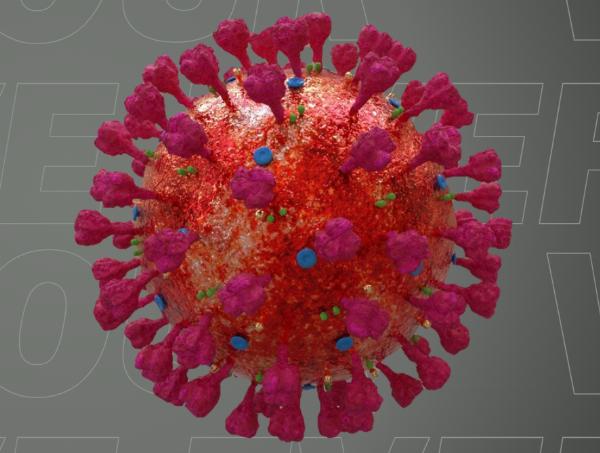A New Study Suggests Hemorrhagic Fever in Apes May Spread to Humans

Strong 8k brings an ultra-HD IPTV experience to your living room and your pocket.
In a new study, researchers have found that an unknown family of viruses has become endemic in wild African primates and causes fatal Ebola-like symptoms in some monkeys, and is poised to infect humans. The findings were published online Sept. 30, 2022, in the journal Cell, in a paper titled "Primate hemorrhagic fever-causing arteriviruses are poised for spillover to humans".
Despite the fact that this virus family, known as arterivirus, has been identified as a major hazard to macaques, no human infections have been documented to yet. It is unknown what effect this virus might have on humans if it jumped species. However, by comparing them to simian immunodeficiency virus (SIV), a precursor virus to human immunodeficiency virus (HIV) that originated in African monkeys, these authors urge caution that by observing arteritis viruses in animals and humans today, the global health community may be able to avoid another pandemic.
Sara Sawyer, professor of molecular, cellular, and developmental biology at the University of Colorado at Boulder and co-corresponding author of the paper, stated, "Animal viruses have been known to enter human cells, multiply, and evade some important immune mechanisms that we would think would protect us from animal viruses. This is really unusual. We should be concerned about them."
There are thousands of different viruses circulating in animals all over the world, the vast majority of which do not cause any symptoms. In recent decades, a growing number of viruses have made their way to humans, wreaking havoc on immune systems that have never had to deal with them. Middle East Respiratory Syndrome Coronavirus (MERS-CoV) in 2012, Severe Acute Respiratory Syndrome Coronavirus (SARS-CoV) in 2003, and SARS-CoV-2 (the coronavirus that causes COVID-19) in 2020 are among them.
For 15 years, Sawyer's lab has used laboratory techniques and tissue samples from wildlife around the globe to explore which animal viruses might be susceptible to infecting humans. She and the paper's lead author, Cody Warren, focused on arteritis viruses, which are abundant in pigs and horses but have received less attention in non-human primates (NHPs). They focused on simian hemorrhagic fever virus (SHFV), an ape arteritis virus that produces a lethal illness comparable to Ebola virus disease and was responsible for a devastating epidemic in captive macaque populations in the 1960s.
This new study indicates that a receptor protein known as CD163 is important in SHFV biology, helping it to penetrate and infect target cells. These researchers discovered, via a series of laboratory studies, that the virus is also quite proficient at attaching to the human form of CD163, entering human cells, and rapidly reproducing itself.
Simian arteritis virus, like HIV and its progenitor virus SIV, appears to assault immune cells, crippling important defensive mechanisms and replicating them in the body. "There are remarkable parallels between this virus and SIV, which created the HIV pandemic," Warren explained.
These authors underlined that another epidemic is not imminent and that the public should not be alarmed. They do, however, suggested that the global health community prioritize more studies on ape arteritis viruses, develop blood antibody testing against them, and investigate surveillance of human populations in close contact with animal carriers.
Note: IndiBlogHub features both user-submitted and editorial content. We do not verify third-party contributions. Read our Disclaimer and Privacy Policyfor details.


